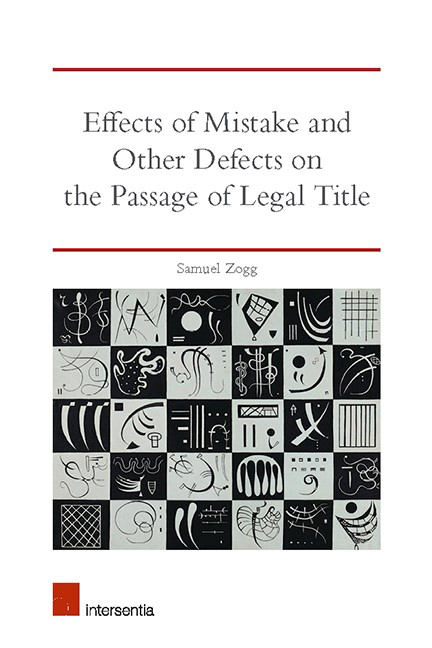Book contents
- Frontmatter
- Dedication
- Preface
- Acknowledgements
- Contents
- List of Cases
- List of Abbreviations
- Chapter 1 An Introduction to Defective Transfers of Property
- Chapter 2 Transfer of Legal Ownership in Tangible Movable Property
- Chapter 3 Defects which Prevent the Passage of Legal Ownership
- Chapter 4 Fundamental Mistake in Particular
- Chapter 5 Conclusion
- Bibliography
- Index
- About the Author
- Frontmatter
- Dedication
- Preface
- Acknowledgements
- Contents
- List of Cases
- List of Abbreviations
- Chapter 1 An Introduction to Defective Transfers of Property
- Chapter 2 Transfer of Legal Ownership in Tangible Movable Property
- Chapter 3 Defects which Prevent the Passage of Legal Ownership
- Chapter 4 Fundamental Mistake in Particular
- Chapter 5 Conclusion
- Bibliography
- Index
- About the Author
Summary
We have analysed, on the one hand, the mechanics of how exactly legal ownership is transferred consensually from one person to another and, on the other hand, the effects of various kinds of defects, particularly mistakes, on the passage of property. It is essential to strictly distinguish between three different levels at which any particular kind of defect might operate, namely property, contract and unjust enrichment. Defects which render contracts void (obligatory defects) are not necessarily sufficient to equally render transfers of property void (real defects). Defects which – in the absence of a justifying legal basis – give rise to a personal restitutionary claim in unjust enrichment (unjust factors) are not necessarily sufficient to affect a contract or even a transfer of property. Conversely, mistakes which are not even capable of rendering contracts void or of giving rise to a claim in unjust enrichment cannot – a fortiori – prevent the passage of property.
There are basically three different modes of how legal ownership in tangible movable property may be transferred, namely delivery, sale (or mere intention) and deed. As far as the scope of those modes of transfer is concerned, it has been argued that delivery or a deed is only but always required if the transfer is gratuitous, i.e. for no consideration, or if the transferred chattel is corporeal money. It has furthermore been argued that each of those three modes of transfer is governed by a principle of separation, in the sense that real conveyance is notionally distinct and separate from an underlying obligatory transaction, for example a contract, and by a principle of abstraction, which means that the conveyance's effectiveness is not dependent on the existence or validity of such an underlying contract or other obligatory transaction. To convey legal title, it is – again with regard to each of those three modes of transfer – basically required that the transferor sufficiently intends to transfer legal ownership and that the transferee (sooner or later) sufficiently intends to receive it. The combination of those two intentions may be called a real agreement.
If this real agreement – i.e. the transferor's intention to transfer property and/or the transferee's intention to receive it – is sufficiently affected (rendered void) by a certain defect, legal ownership does not pass to the transferee ab initio.
- Type
- Chapter
- Information
- Publisher: IntersentiaPrint publication year: 2019



